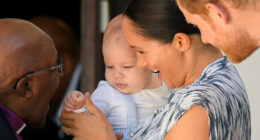
Social isolation could play a part in blood pressure readings shooting north, researchers discovered. Here are the details on a recent report published in the European Society of Cardiology. Dr Matías Fosco said: “The mandatory social isolation period [due to Covid restrictions] was linked with a 37 percent increase in the odds of having high blood pressure.” This link remained irregardless of age, sex, season, and time of consultation.
“After social isolation began, we observed that more patients coming to emergency had high blood pressure,” said Dr Fosco.
The practitioner added: “We conducted this study to confirm or reject this impression.”
The doctor and his research fellows at Favaloro Foundation University Hospital, in Buenos Aires, collated data during March 20 to June 25, 2020.
In that time period, those in the hospital’s emergency department had their blood pressure recorded.
READ MORE: How to live longer: Walking every day promotes longevity – the amount you need to do
This means almost every patient admitted in those time periods were included in the study.
There were 12,241 records of blood pressure readings for patients who, on average, were around 57 years old.
The most common reasons why people were in the emergency department consisted of:
READ RELATED: Scarlett Moffatt urges women to get smear tests after abnormal cells
- Chest pain
- Shortness of breath
- Dizziness
- Abdominal pain
- Fever
- Cough
- Hypertension
During the three-month isolation period, 1,643 patients were admitted to the emergency ward.
This was 56.9 percent less than the patients admitted to the same ward, in the same time period the year before, which consisted of 3,810 patients.
The number of patients in the hospital’s emergency department was also 53.9 percent less than the three months prior to social isolation restrictions.
Before Covid restrictions were implemented, there were 3,563 patients who had been admitted to the emergency department in three months.
During the social isolation period, 23.8 percent admitted to emergency had high blood pressure.
This was significantly higher than the same period in 2019, which was 17.5 percent of people in the emergency department with high blood pressure.
It was also much higher than the time period just before the social restrictions were enforced, when it was 15.4 percent.
Dr Fosco commented on the findings: “There are several possible reasons for the connection between social isolation and high blood pressure.”
He mentioned increased levels of stress, limited social contact, financial difficulties and behaviour changes, such as higher intake of food and alcohol, and a more sedentary lifestyle.
Source: Daily Express







